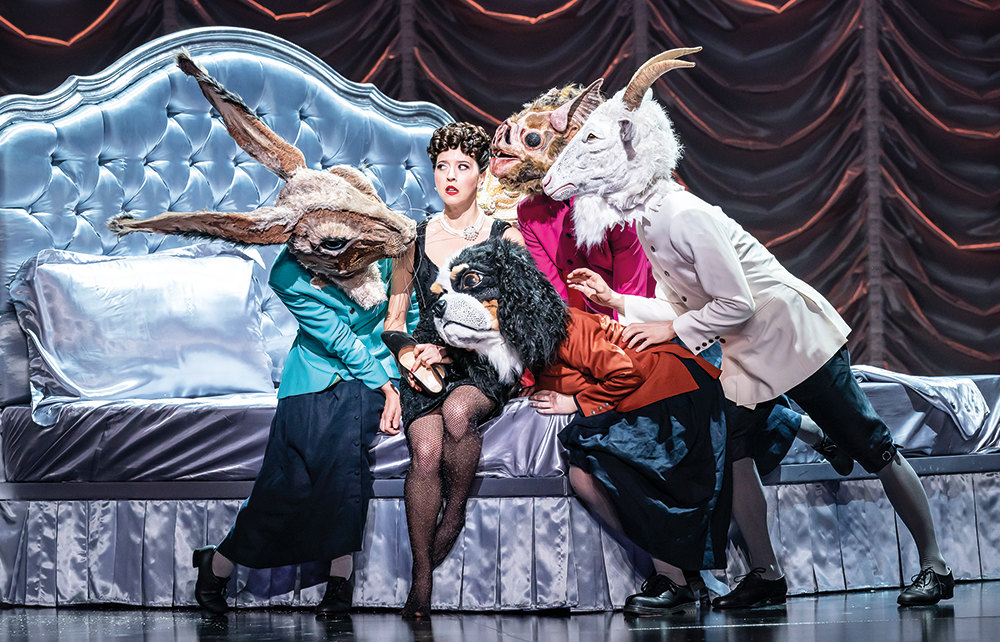A hotel bellboy, the story goes, discovered George Best in a luxury suite surrounded by scantily clad lovelies and empty champagne bottles. ‘George, George’, he sighed. ‘Where did it all go wrong?’. It’s the same deal, essentially, with Ruggiero, hero of Handel’s Alcina. As the curtain rises he’s in the boudoir of Alcina, a smokin’ hot love-witch who lives on a paradise island with her minxy little sister, Morgana, and whose only serious failing – and who are we, really, to judge? – is a fondness for transforming her enemies into animals. This being an epic tale of chivalry, and this being 1735, it’s universally understood that having this much fun simply isn’t on. Whether he likes it or not, Ruggiero is to be restored to his virtuous and (in this staging, for some reason) tam o’shanter-wearing wife, Bradamante.
The ROH orchestra was transformed, fizzing and swirling in a buff, buoyant version of period style
There’s your basic dramatic problem: solve for a 21st-century audience. Is Handel playing a crafty double-game here – titillating while he moralises; using conventional pieties as a licence to play, very knowingly, upon his public’s animal instincts? It hardly matters because in this hugely entertaining new production from director Richard Jones it’s sexy time all the way. The forces of virtue are Bible-thumping puritans (literally – they wear stovepipe hats). Boo, hiss! Alcina (Lisette Oropesa), meanwhile, sashays about in Louboutins and a strappy little black number, flashing devilish grins at the audience. Morgana (Mary Bevan) is a Dr Martens-wearing redhead in a see-through dress.
Jones has been through a duff patch recently, culminating in a car-crash Valkyrie late last year. Maybe there’s something in Alcina’s magic after all, because he seems to have regained his mojo. This is a blast: quirky but never outright silly, full of playful little touches (Morgana and Oronte rutting in a potting shed like teenagers on heat; a giant spaniel casually chewing on Alcina’s designer shoes) and delightful to look at.







Comments
Join the debate for just £1 a month
Be part of the conversation with other Spectator readers by getting your first three months for £3.
UNLOCK ACCESS Just £1 a monthAlready a subscriber? Log in